| | | | April 2023 • Issue No. 17 | | The Latest at Harvard Law School's
Food Law and Policy Clinic | | 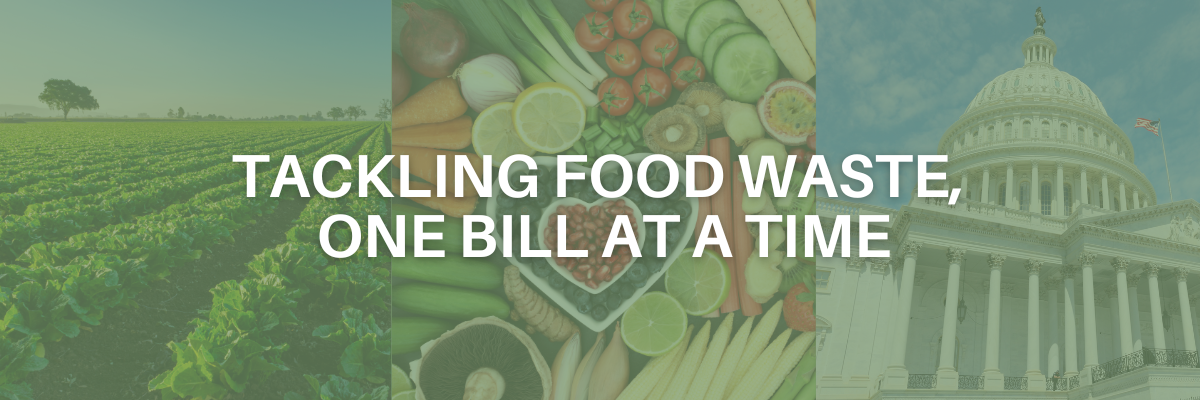 | In an era of increasingly divisive partisan politics, tackling food waste is one of those rare issues that can garner support across both sides of the aisle, and for good reasons. Approximately 35% of the food produced in and imported into the United States goes to waste. This waste carries enormous economic, environmental, and social costs. As staggering amounts of food are wasted throughout our food system, one in ten Americans struggles with food insecurity. Recognizing the tremendous opportunity and impact of diverting food to people who are food insecure while conserving natural resources required to produce wasted food, the Harvard Food Law and Policy Clinic (FLPC) has been leading the policy fight against food waste. We were thrilled to see a momentous start to 2023, and we are optimistic that federal lawmakers will continue to advance food waste laws and policies throughout the remainder of the year. Here are the major bills and laws we’ve been tracking: - The Food Donation Improvement Act (FDIA), legislation that will reduce food waste by promoting food donation, was signed into law by President Biden on January 5, 2023. FLPC played an instrumental role in the legislative process of the FDIA. The Act strengthens liability protections to further incentivize donation—rather than disposal—of safe, wholesome food, including by: 1) extending liability protection to donations offered to recipients at a good Samaritan reduced price, and 2) extending protections to certain donations given by food businesses, those that must already comply with food safety requirements, directly to those in need. Read our blog post here to learn more about the law.
- In early February, the Zero Food Waste Act was reintroduced in both the House and Senate. The Act, which is endorsed by FLPC, would create new grant programs administered by the Environmental Protection Agency to support local, state, tribal, and territorial governments as well as nonprofits in their efforts to reduce food waste. Find out more about the Act here.
- Congress is shifting its attention toward the 2023 Farm Bill. FLPC along with its partners, (NRDC) Natural Resources Defense Council, ReFED, and World Wildlife Fund (WWF), outlined a series of recommendations for the 2023 Farm Bill to prevent food waste, recover surplus food, recycle food waste, and coordinate waste reduction efforts. These measures have the potential to annually generate $73 billion in net financial benefits, recover the equivalent of 4 billion meals for hungry families, save 4 trillion gallons of water, and prevent 75 million tons of greenhouse gas emissions, according to data compiled by ReFED. As Congress considers how it can best deploy federal funds to support a less wasteful, more equitable, and more sustainable food system, FLPC stands ready to continue to partner in those efforts. Watch this presentation to learn more about our recommendations.
Building on this momentum, FLPC, NRDC, ReFED, and WWF today launched the Zero Food Waste Coalition, a national effort focused on informing and influencing policy at the local, state, and federal levels. The coalition will bring consumers, businesses and government together to advocate for ambitious food waste policy solutions that contribute to the U.S. goal of halving food waste by 2030. Along with today's launch, the Coalition also released its top priorities for the Farm Bill, including provisions that expand federal administrative research and funding, increase grants and loans for infrastructure that eliminates food waste from landfills and for proven state and local policies that prevent wasted food, and standardize and clarify food date labels. More information on the Coalition is available here. | | | | | | | | Recent Publications and Events | | 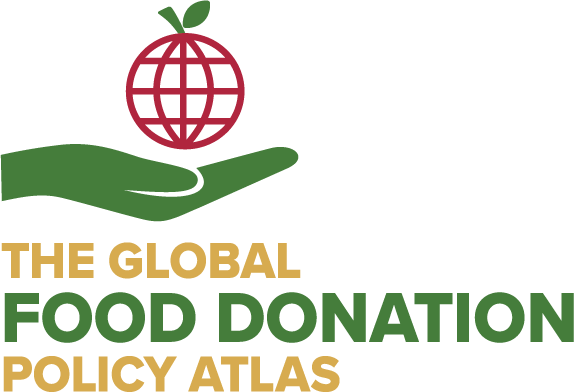 | The Global Food Donation Policy Atlas Research In the last six months, FLPC and The Global Food Banking Network (GFN) released Legal Guides, Policy Recommendations, and Executive Summaries on food donation laws and policies in China, Ecuador, Ghana, and Paraguay. We also added these countries to our online, interactive map that now compares food donation laws and policies across 20 countries around the world. In the coming months, additional research will be released for Brazil and Israel, as well as topical issue briefs on food safety for donations and food waste deterrence policies.
In addition, FLPC, GFN, Food Forward SA, and the Consumer Goods Council of South Africa published Surveys of Business Perceptions: Food Safety and Liability Protection for Food Donations in South Africa to share findings from two surveys on concerns potential donors have around food donation. | | 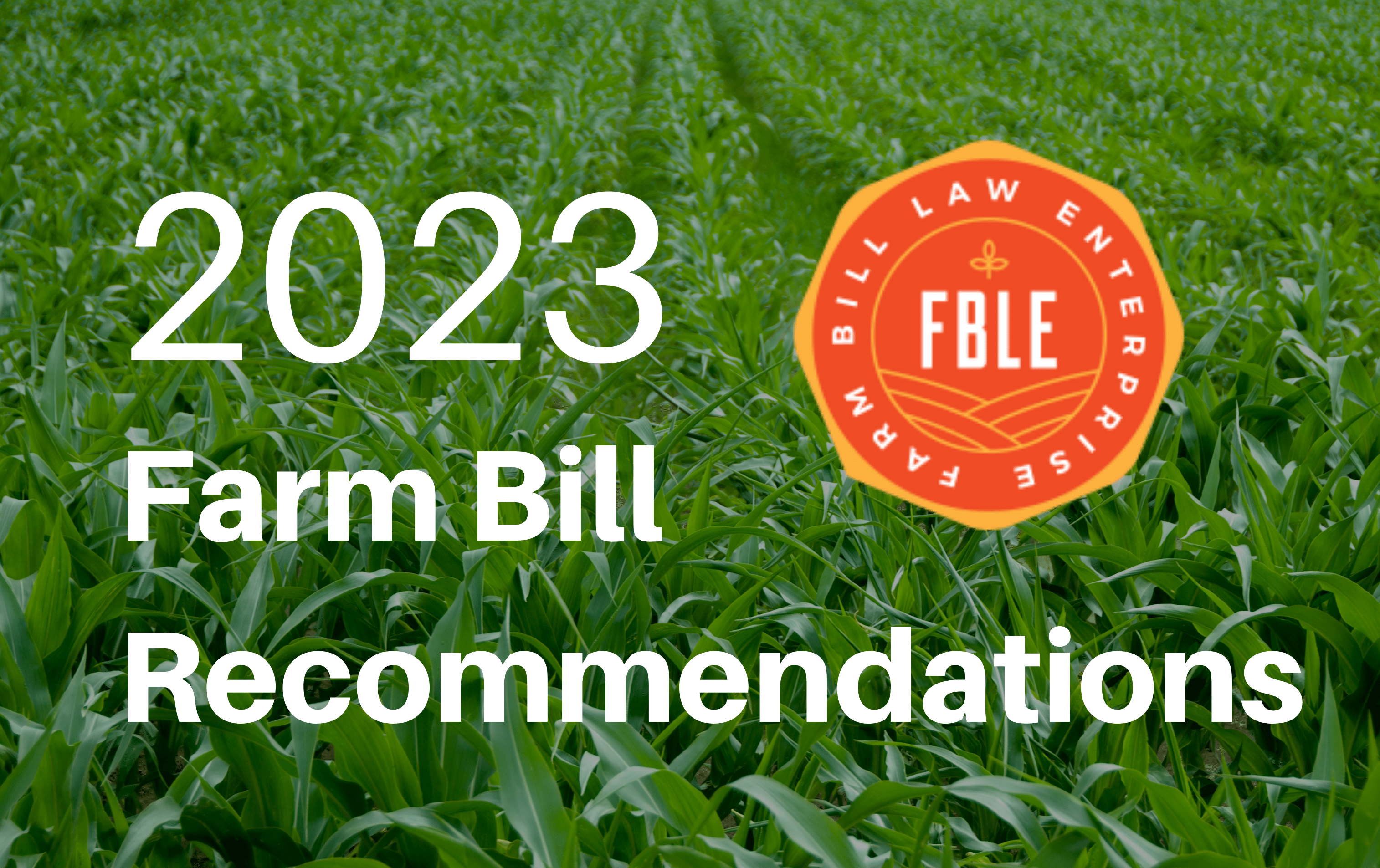 | | | 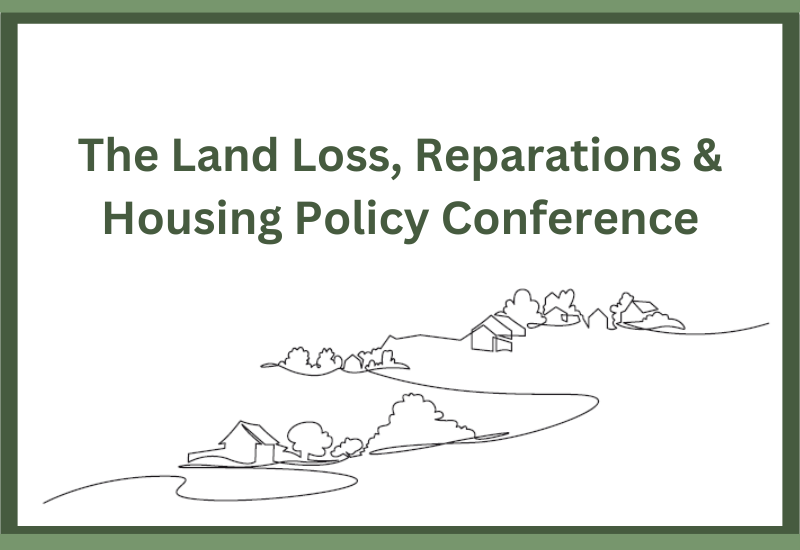 | The Land Loss, Reparations, and Housing Policy Conference In March 2023, FLPC co-sponsored and co-hosted a conference organized by Boston College Law School’s Initiative on Land, Housing, and Property Rights. The conference addressed Black land loss, discrimination, housing inequality and affordability, as well as emerging legal and policy solutions. | | 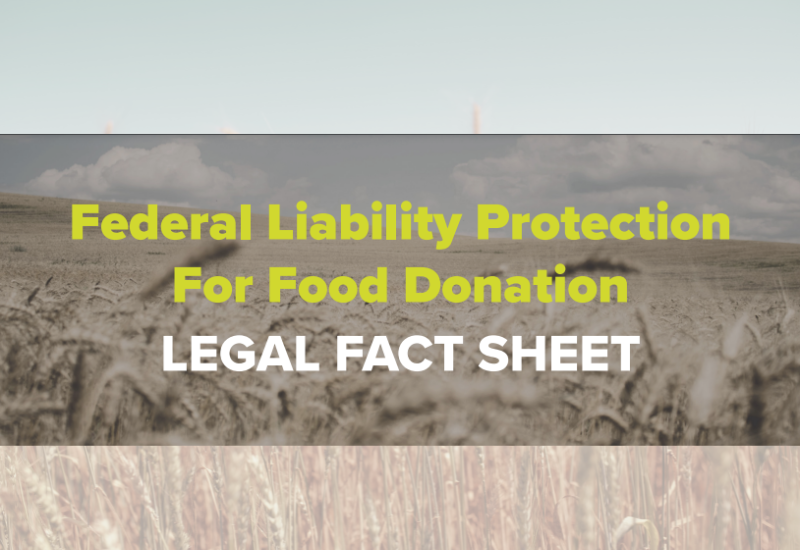 | | | 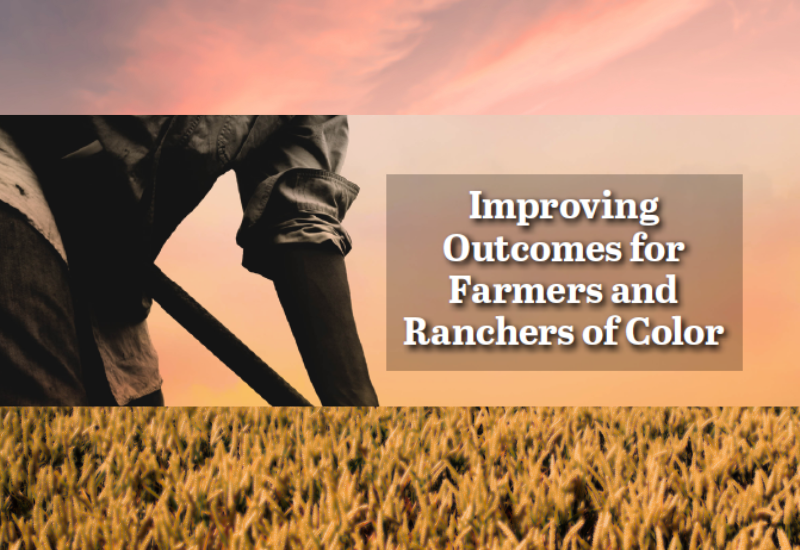 | Improving Outcomes for Farmers and Ranchers of Color In February 2022, FLPC hosted an event featuring Eloris Speight, Director of The Socially Disadvantaged Farmers and Ranchers (SDFR) Policy Research Center at Alcorn State University, who spoke about the Center’s work to improve outcomes for farmers and ranchers of color. | | 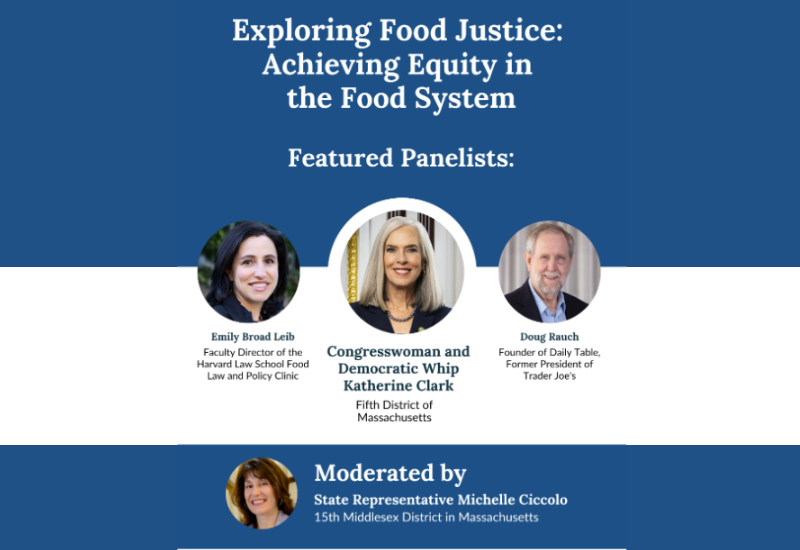 | | | 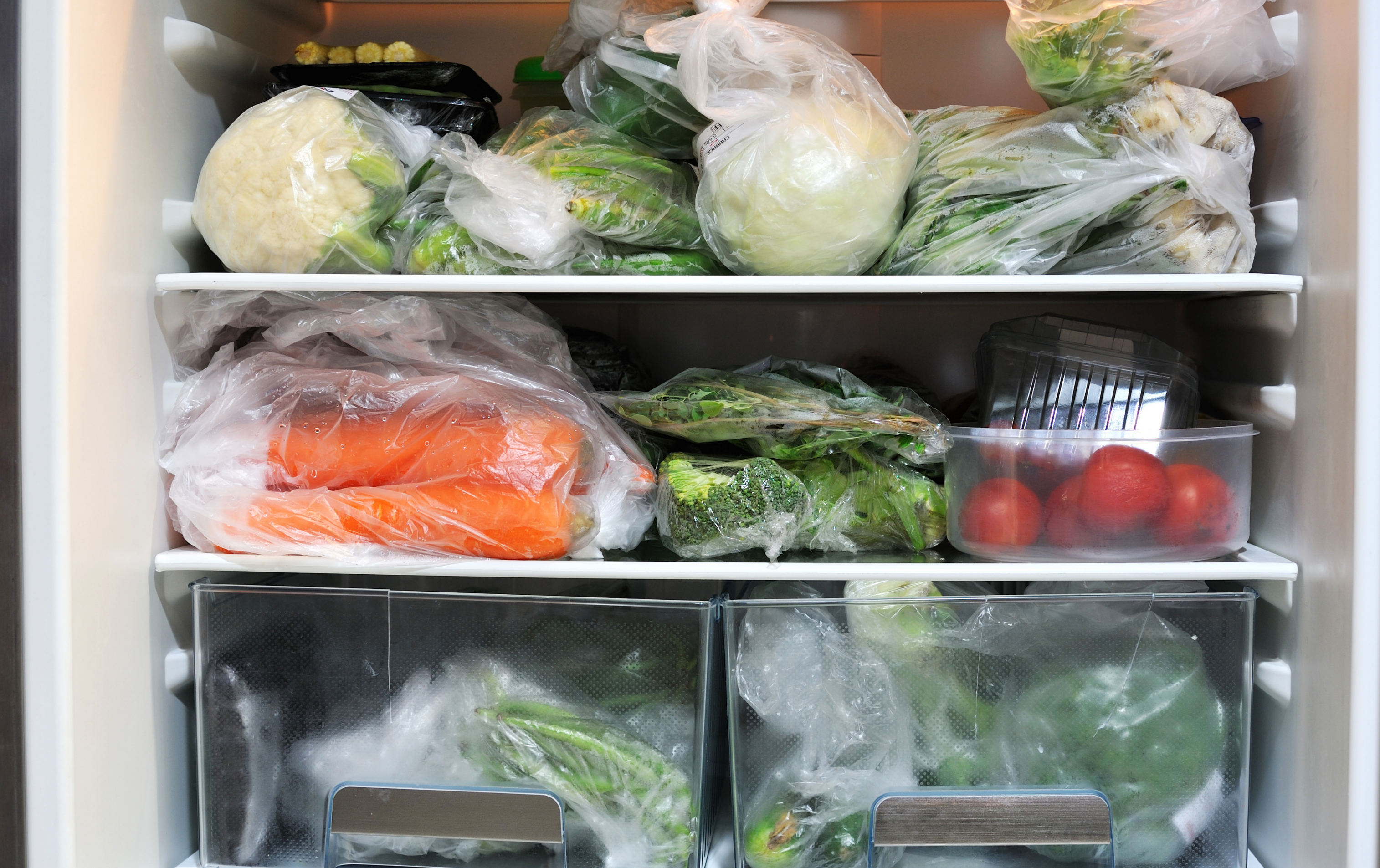 | Community Fridges: Legal Questions and Answers In December 2022, FLPC published an updated list of common legal questions from community fridge organizers and volunteers, along with answers. The living document also includes a link to submit further questions on the subject. The Q&A was published in collaboration with the Hofstra Law School Community and Economic Development Clinic and the UCLA School of Law Food Law and Policy Clinic, with significant input from the Sustainable Economies Law Center. | | | 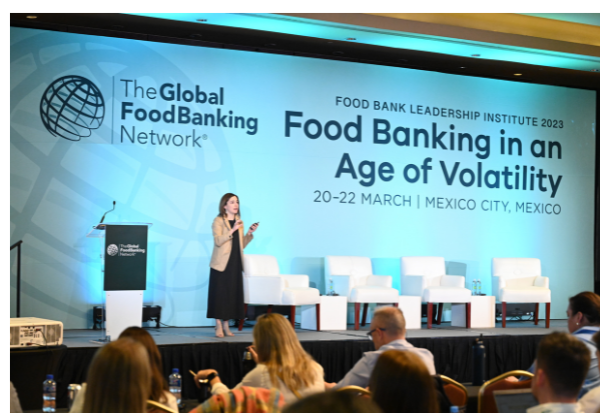 | | | 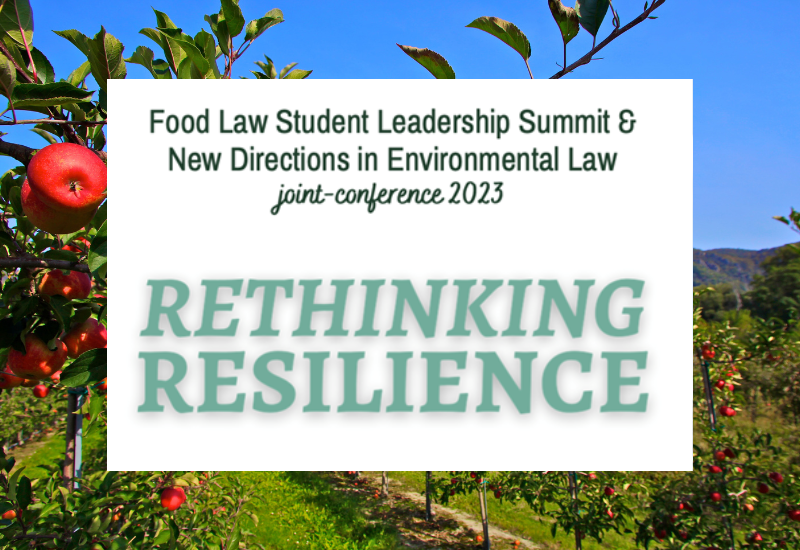 | Rethinking Resilience: Food Law Student Leadership Summit and New Directions in Environmental Law 2023 In March 2023, FLPC co-hosted the Food Law Student Leadership Summit to bring together law students across the nation to learn, network, and engage with those working to transform our food systems. This year’s Summit was held in conjunction with the New Directions in Environmental Law (NDEL) Conference, which is held annually at Yale University. FLPC is grateful to the Charles M. Haar Food and Health Law and Policy Fund and GRACE Communications Foundation for helping to make this event a reality each year. | | 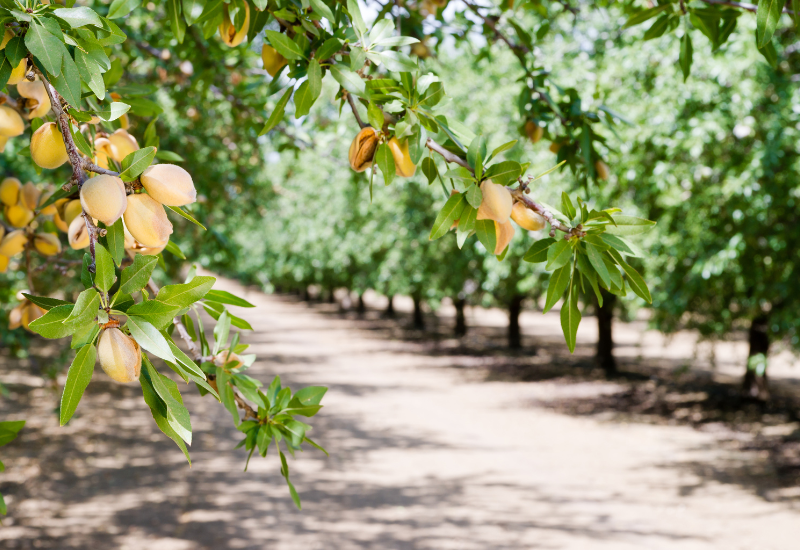 | Policy Pathways for Perennial Agriculture In December 2022, Frontiers in Sustainable Food Systems published this policy brief article co-authored by FLPC staff, including Emma Scott and Emily Broad Leib. The article defines perennial agriculture, argues for broad perennialization of U.S. agriculture, and identifies near-term gaps and opportunities in federal policy to support this shift. | |  | | | 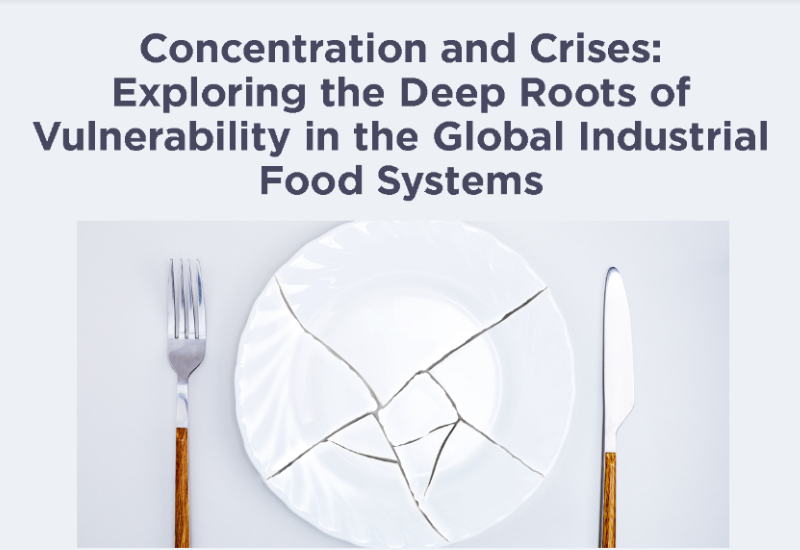 | | |  | | | | | | | | | | | | | Emma Scott Promoted to Associate Director of FLPC In April 2023, Emma Scott was promoted to Associate Director of FLPC. Since 2019, Emma has focused on FLPC's Sustainable and Equitable Food Production initiative and the Clinic's ongoing projects in the Mississippi Delta. Emma will continue to lead these and other aspects of the Clinic's work in her new role. Conratulations, Emma! | | | | FLPC Welcomes Clinical Instructor Heather Latino In January 2023, Heather Latino joined FLPC as a Clinical Instructor. Prior to joining FLPC, she served as a Deputy Legal Director for the Legal Aid Society of the District of Columbia and was a supervising attorney in the Housing and Consumer Law Units. Heather’s current portfolio focuses on increasing access to affordable, safe, and healthy foods and food loss, waste, and donation. | | | | FLPC Welcomes Clinical Fellow Gray Norton In January 2023, Gray Norton joined FLPC as a Clinical Fellow after previously working with FLPC as a summer intern and research assistant. Gray’s portfolio currently focuses on advancing policies that support food system workers. She also works on international food waste mitigation and food donation policies. | | | | FLPC Welcomes Visiting Scholar Chiaretta Giordana In February 2023, FLPC welcomed Chiaretta Giordana as a visiting scholar from the Meitar Center for Legal Advanced Studies of Tel Aviv University. While at FLPC, Chiaretta will work on her doctoral dissertation, which explores the causes of malnutrition and hunger among indigenous peoples and critiques the inadequacy of international food law in ensuring their food security. | | | | Congratulations Harvard Law School Class of 2023 From the FLPC staff and faculty, we appreciated having you in our clinic and seminars over the last few years and wish you all the best of luck on your next adventures. Congratulations, graduates! | | | | | | | | | | | | | | The Harvard Law School Food Law and Policy Clinic (FLPC) serves partner organizations and communities by providing guidance on cutting-edge food system issues, while engaging law students in the practice of food law and policy. FLPC’s work focuses on increasing access to healthy foods, supporting sustainable production and regional food systems, promoting community-led food system change, and reducing waste of healthy, wholesome food. FLPC is committed to advancing a cross-sector, multi-disciplinary and inclusive approach to its work, building partnerships with academic institutions, government agencies, private sector actors, and civil society with expertise in public health, the environment, and the economy. Learn more about FLPC. | | | | | | | | | | | |